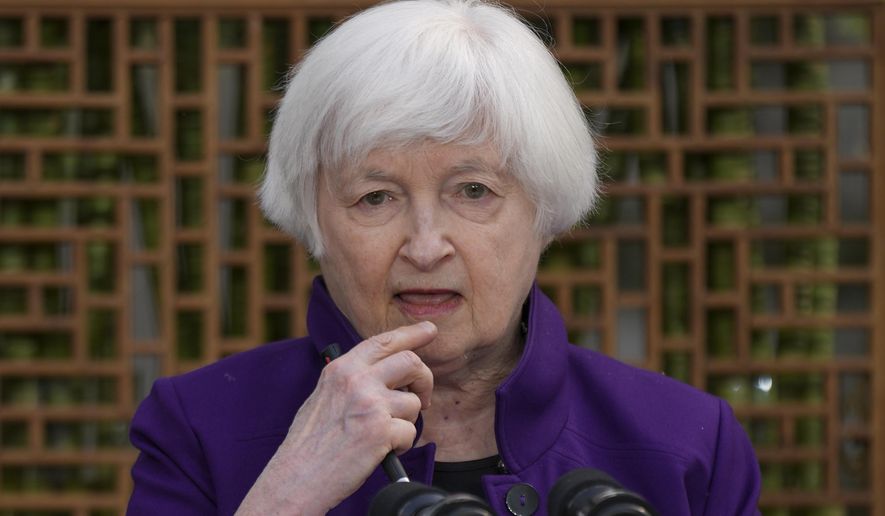OPINION:
The Biden administration is livid over China’s ongoing theft of U.S. intellectual property. No, the president isn’t mad at Beijing’s spies for purloining trade secrets from American businesses. His Cabinet secretaries want to stop China from copying Washington’s strategy of providing boundless subsidies to green energy.
“It’s fine for China’s firms to export in this industry, to develop it,” Treasury Secretary Janet Yellen told CNBC earlier this month. “But some of the techniques that they use — subsidizing their firms very heavily and then supporting them even when they’re losing money when demand is weak … this is something that’s unacceptable from the U.S. point of view.”
Ms. Yellen’s remarks were made after a series of high-level meetings with Chinese leaders in which she delivered her stern message. “I’m not thinking so much of export restrictions as some shifts in their macroeconomic policy and a reduction particularly in local government subsidies to firms in these industries,” she explained.
It’s difficult to quantify how much Uncle Sam is pouring into any money-losing scheme that has a green label attached to it. In a report last year, the Energy Information Administration calculated solar panel and windmill subsidies have doubled since 2016, reaching $15.6 billion in 2022.
And that’s just the amount spent underwriting the electricity supply. The Biden administration has also spent $9.5 billion to prop up factories that make batteries for electric vehicles. The move helps conceal the true sticker price of plug-in cars.
The Texas Public Policy Foundation tallied $22 billion in public funds being used to lower the cost of buying electric cars — the favored mode of transportation for wealthy liberals. Without all of the direct and indirect subsidies, the cost would increase by a staggering $48,698 per vehicle, the foundation’s study concluded.
A big chunk of the total comes from state and federal tax benefits for buyers of up to $9,000, plus $1,300 in car charger credits. Indirectly, EVs don’t have to pay the cost of the wear and tear these much heavier automobiles impose on the roads. Manufacturers also receive valuable credit under Corporate Average Fuel Economy regulations designed to penalize production of the kinds of cars most people want to buy.
Despite the artificially lowered prices, most Americans still aren’t interested, and EV sales growth has stalled. Because demand is so weak, politicians on the left — many invested in green technology — have resorted to draconian mandates to force everyone to go electric, whether they want to or not.
Rep. Ro Khanna, California Democrat, has reportedly invested in General Electric, a major player in making windmills. Mr. Khanna and Sen. Tom Carper, Delaware Democrat, have also owned NextEra Energy stock. While there’s nothing illegal in these trades, it ought to be unacceptable to force people to buy products made by companies in which any lawmaker has a financial stake.
Coercion is music to the Chinese Communist Party’s ears. So, it’s not surprising Beijing wants to plagiarize from the Democratic Party’s green energy playbook. A better policy for every country, especially ours, would be to pull the plug on EV subsidies and let people buy what they want.




Please read our comment policy before commenting.